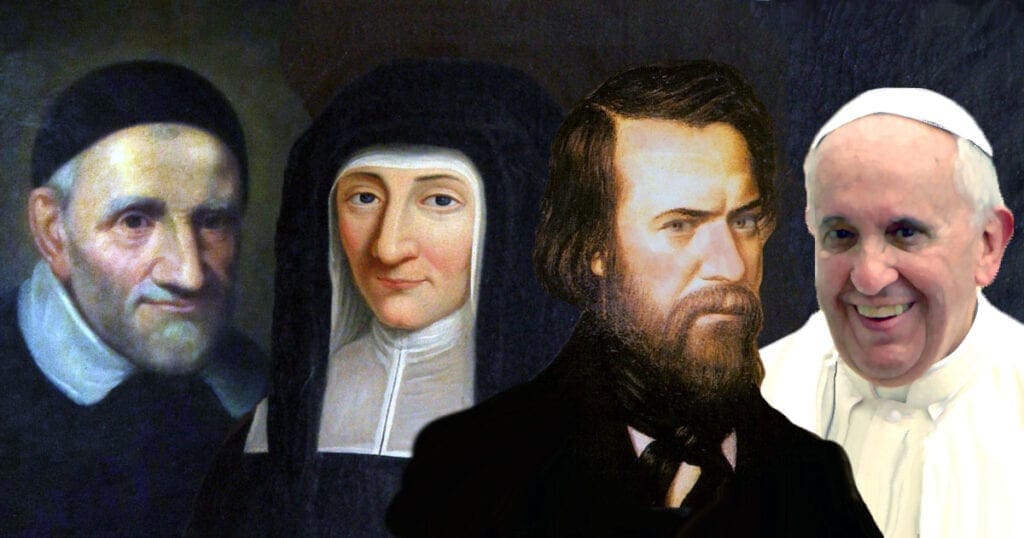Vincent de Paul, Louise de Marillac, Frederic Ozanam, and Pope Francis all had to find ways to minister to people during a time of pandemic. Vincent and Louise had to confront various outbreaks of the plague which resulted in the death of thousands of people during the seventeenth century. Frederic and other members of the recently established Society of Saint Vincent de Paul cared for those who were afflicted with cholera (highly contagious and deadly). Pope Francis has had to minister in the midst of the COVID-19 pandemic which has infected almost 27 million people worldwide while claiming the life of more than eight hundred seventy-five thousand people.

Though separated by centuries, yet in each of these situations we find many similarities:
- The poor and the marginalized were the people most severely affected;
- Great sacrifice was demanded from those caring for the victims of these pandemics;
- Traditional mourning/burial rites had to be abandoned;
- “Normal” everyday life came to a halt;
- Hunger and homelessness became more acute;
- Essential workers were most at risk (Marguerite Naseau, [the “first Daughter of Charity] died while caring for a poor woman stricken by the plague).
Each of these pandemics created physical, spiritual and social infirmities and therefore, healing had to take place on many different levels.
Vincent and Louise’s vision of healing: the fundamental belief that grounded Vincent and Louise’s understanding of healing is found in their often repeated words that the poor have the honor of representing the members of Jesus and have the image of God imprinted upon them. Furthermore, Louise stated that the members of the Confraternities of Charity should look upon the sick poor as their own children, God having made them their mothers (Cf. SWLM:708 [A.56 – Rule of the Charity]).
Yet, it was very clear to both Vincent and Louse that the dignity of the human person, made in the image and likeness of God, was not at the center of society in the way that it should have been. They would, therefore, have no problem affirming the words that Pope Francis spoke during his recent weekly audience: the principle of the dignity of the person, the principle of the common good, the principle of the preferential option for the por, the principle of the universal destination of goods, the principle of solidarity, of subsidiarity, the principle of the care for our common home … these principles help the leaders, those responsible for society, to foster growth and also, as in the case of the pandemic, the healing of the personal and social fabric (Pope Francis, General Audience, August 5, 2020).
We, as members of the Worldwide Vincentian Family, are leaders, responsible for society, responsible for fostering growth and healing. How, then, can we make those above-mentioned principles a part of our life and the life of the broader society? Where and how do we even begin to initiate such a process? Is it unreal to believe that we could actually engage in such a process?
To view Part I, click here.
To view Part II, click here.
To view other posts in this series, click here.







0 Comments